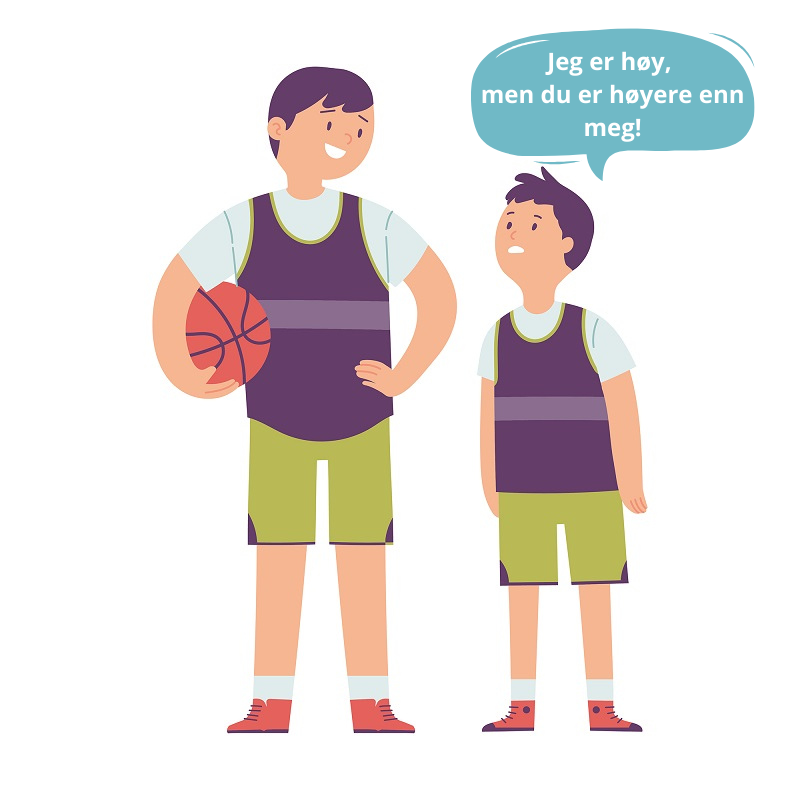Degrees of comparison of adjectives

When we describe something, we often do it by comparing it to something else. In order to compare some characteristics, we use different degrees of comparison of adjectives. For example, “Paul is tall. – Martin is taller. – Mathew is the tallest”. “Taller” is an example of the comparative degree, “tallest” – of the superlative degree. We do the same in Norwegian. Let’s see how it works.
The main rule is that you add -ere for comparative and -est for superlative degrees. For example:
| Positive | Comparative | Superlative |
| pen (pretty) | penere (prettier) | penest (prettiest) |
| dyr (expensive) | dyrere (more expensive) | dyrest (most expensive) |
Other rules:
Adjectives ending with -el, -en and -er lose that -e when you make a comparison:
- enkel – enklere – enklest (easy – easier – easiest)
- vakker – vakrere – vakrest (beautiful – more beautiful – most beautiful)
Adjectives that end with -ig and -som get only -st in the superlative form:
- billig – billigere – billigst (cheap – cheaper – cheapest)
- morsom – morsommere – morsomst (funny – funnier – funniest)
***Note that the adjectives with -m get another -m in comparative.
Some adjectives use the words mer (more) and mest (most) instead of endings.
These are mostly adjectives ending in -sk, some adjectives of foreign origin (for example, English or other European languages), many “long” adjectives and adjectives ending in -et(e):
- interessant – mer interessant – mest interessant (interesting – more interesting – most interesting)
- praktisk – mer praktisk – mest praktisk (practical – more practical – most practical)
- komplisert – mer komplisert – mest komplisert (complicated – more complicated – most complicated)
Some adjectives don’t follow any rules at all. Here are the most common ones:
- liten – mindre -minst (little, small)
- stor – større – størst (big)
- god – bedre – best (good)
- vond – verre – verst (bad)
- ung – yngre – yngst (young)
- gammel – eldre – eldst (old)
- lang – lengre – lengst (long)
How to compare things in Norwegian?
You will need the help of the word “enn” – “than”:
- Mitt hus er større enn ditt. – My house is bigger than yours.
- Anna er yngre enn Melisa. – Anna is younger than Melisa.
What is an example for “long adjectives and adjectives ending in -et(e)” (that also take mer/mest) ?
Here are some examples for you:
blomstrete – mer blomstrete – mest blomstrete (florish)
bakkete- mer bakkete – mest bakkete (road with hills)
levende – mer levende – mest levende (alive)
I like it that there is a separate word for ‘road with hills’ 🙂 We don’t have that one as far as I know, it is just ‘road’!
Hi,
in the example “vakker” not only lost “e” while getting comparative but also one of “k’s” changed to “r”. Well, I have the feeling why that happened but I think it needs more explanation 🙂 Or a different example 😉
Hilsen,
Maciej
Adjectives ending in -el, -en and -er often lose the ‘e’ when they are inflected.
Examples of degree bending:
ekkel eklere eklest
doven dovnere dovnest
vakker vakrere vakrest